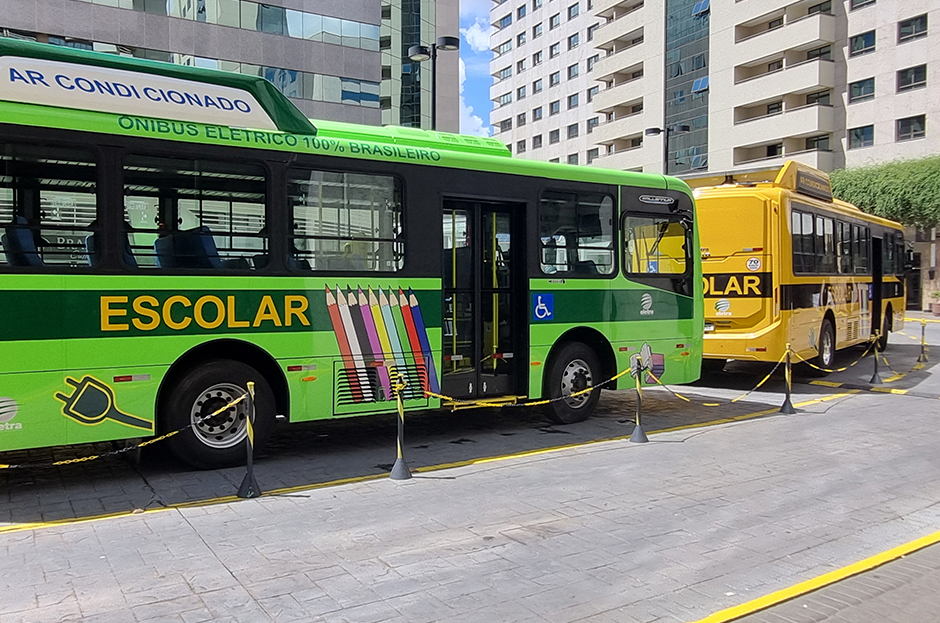
- INSTITUTIONAL
- PRODUCTS
- CAIO PROTECT
- SALES AND SERVICES
- PROVIDERS
- GALLERY
- PEOPLE & MANAGEMENT
- CONTACT
 Caio has manufactured the first electric school buses in the country, called eMillennium. These buses are 100% Brazilian, equipped with electric traction, Eletra electrification, Weg engine, and batteries. This achievement marks an important milestone for Brazilian electromobility.
Caio has manufactured the first electric school buses in the country, called eMillennium. These buses are 100% Brazilian, equipped with electric traction, Eletra electrification, Weg engine, and batteries. This achievement marks an important milestone for Brazilian electromobility.